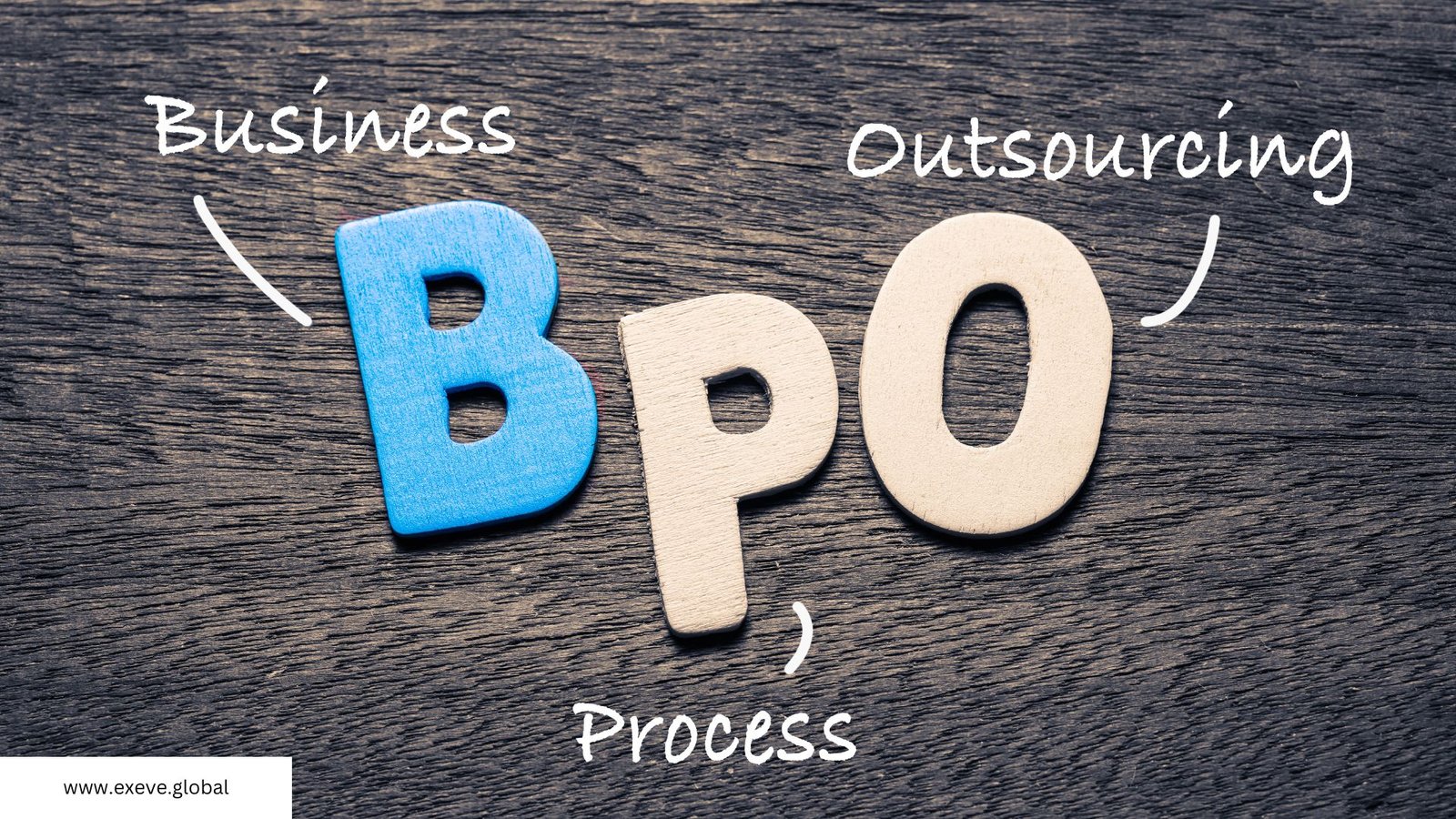
Business Process Outsourcing (BPO) is a business practice where organizations contract external service providers to perform essential business functions or tasks. Initially popular in the manufacturing sector, BPO has expanded to various industries, offering companies the opportunity to focus on core activities while outsourcing specialized functions.
Overview
- BPO involves contracting third-party providers to handle specific business functions.
- It originated in the manufacturing industry but is now used across various sectors.
- BPO can include both front-office (customer-facing) and back-office (internal) tasks.
- Key benefits of BPO include cost reduction, access to expertise, and allowing companies to focus on core activities.
- Challenges in BPO can include quality control issues, communication barriers, and data security concerns.
Table of contents
- Overview
- What is Business Process Outsourcing (BPO)?
- How Does Business Process Outsourcing Work?
- Types of Business Process Outsourcing
- Benefits of Business Process Outsourcing
- Challenges in Business Process Outsourcing
- Industries That Use Business Process Outsourcing
- How to Choose a BPO Provider
- Future Trends in Business Process Outsourcing
- Case Studies of Successful BPO Implementations
- Common Misconceptions About Business Process Outsourcing
- Conclusion
What is Business Process Outsourcing (BPO)?
Business Process Outsourcing (BPO) is a type of outsourcing where a third-party service provider is employed to carry out one or more business functions in a company. The third party is responsible for all operations related to the business function. BPO is also known as subcontracting or externalization. It was originally used in the manufacturing industry but is now utilized across various sectors, including Digital Agencies.
Definition of BPO
BPO involves working with third-party vendors to manage business operations. Unlike hiring a freelancer or outsourcing for a single task, BPO encompasses entire business functions such as marketing, accounting, or customer service. This comprehensive approach allows businesses to focus on their core activities while leveraging external expertise.
History of BPO
Initially, BPO was predominantly used in the manufacturing industry to handle specific processes like supply chain management. Over time, it has expanded to include a wide range of business functions across different industries. The evolution of technology and globalization has further accelerated the adoption of BPO.
Key Characteristics of BPO
- Comprehensive Management: BPO providers handle entire business functions, not just isolated tasks.
- Cost Efficiency: Outsourcing can significantly reduce operational costs for businesses.
- Focus on Core Activities: By outsourcing non-core functions, companies can concentrate on their primary business goals.
- Access to Expertise: BPO allows businesses to leverage specialized skills and technologies that may not be available in-house.
Without a proper BPO process, businesses may face challenges such as increased operational costs, inefficiencies, and a lack of focus on core activities. This can hinder growth and competitiveness in the market.
How Does Business Process Outsourcing Work?
Business process outsourcing begins when a company determines it can gain a benefit from outsourcing a business function, such as marketing, accounting, or supply chain management, to an external company. The company then begins researching different companies that specialize in performing the needed business function. Often, the searching company will contact more than one BPO company to determine the best fit.
Steps Involved in BPO
- Identify the Need: The company identifies which business functions can be outsourced for better efficiency and cost-effectiveness.
- Research Potential BPO Providers: The company researches and evaluates multiple BPO providers to find the best fit.
- Contract Agreement: Once a suitable BPO provider is found, a contract is negotiated and signed.
- Transition Phase: The business process is transitioned to the BPO provider, including training and knowledge transfer.
- Ongoing Management: Continuous monitoring and management of the BPO relationship to ensure quality and performance.
Roles and Responsibilities in BPO
- Client Company: Defines the scope of work, sets performance metrics, and manages the BPO relationship.
- BPO Provider: Executes the outsourced business functions, maintains quality control, and reports performance metrics.
- Project Managers: Oversee the transition and ongoing management of the outsourced processes.
- IT Support: Ensures that the necessary technology and infrastructure are in place for seamless operations.
Technologies Used in BPO
- Automation Tools: Used to streamline repetitive tasks and improve efficiency.
- Cloud Computing: Provides scalable and flexible IT resources for BPO operations.
- Customer Relationship Management (CRM) Systems: Manage customer interactions and data.
- Data Analytics: Helps in making informed decisions and improving business processes.
Without a proper BPO process, businesses may face inefficiencies, higher costs, and a lack of focus on core activities. Properly implemented BPO can lead to significant benefits, including cost reduction and access to specialized expertise.
Types of Business Process Outsourcing

Business Process Outsourcing (BPO) can be broadly categorized into three main types: Front-Office BPO, Back-Office BPO, and Offshore vs. Onshore BPO. Each type serves different functions and offers unique benefits to organizations.
Front-Office BPO
Front-Office BPO involves outsourcing customer-facing services such as customer support, sales, and marketing. These services are crucial for maintaining customer satisfaction and driving revenue growth. By outsourcing these functions, companies can focus on their core business activities while ensuring that their customers receive high-quality service.
Back-Office BPO
Back-Office BPO includes internal business functions like human resources, accounting, and IT services. These tasks are essential for the smooth operation of a business but do not directly interact with customers. Outsourcing back-office functions can lead to significant cost savings and operational efficiency.
Offshore vs. Onshore BPO
Offshore BPO refers to outsourcing business processes to a company located in a different country, often to take advantage of lower labor costs. Onshore BPO, on the other hand, involves outsourcing to a company within the same country. Both options have their advantages and disadvantages. Offshore BPO can offer substantial cost savings, but it may also come with challenges such as communication barriers and time zone differences. Onshore BPO provides easier communication and better alignment with local regulations but may be more expensive.
Without a proper BPO strategy, businesses may face challenges such as increased operational costs, inefficiencies, and a lack of focus on core activities. Investing in BPO is crucial for online visibility, competitive advantage, and sustainable growth in the digital age.
Benefits of Business Process Outsourcing
Business process outsourcing offers valuable benefits for organizations and allows for greater focus on highly skilled and specialized roles essential to core objectives. These benefits include:
Challenges in Business Process Outsourcing
Quality Control Issues
One of the significant challenges in BPO is maintaining consistent quality across outsourced tasks. Without a proper process, businesses may face issues related to varying standards and expectations. This can lead to customer dissatisfaction and potential loss of business.
Communication Barriers
Effective communication is crucial in BPO. However, differences in time zones, languages, and cultural nuances can create barriers. These barriers can result in misunderstandings and delays, impacting the overall efficiency of the outsourced processes.
Data Security Concerns
Data security is a major concern in BPO. Companies must ensure that their data is protected when outsourcing processes. Failure to do so can lead to data breaches, which can have severe consequences, including legal repercussions and loss of customer trust.
Despite the numerous and impressive benefits to BPO, the disadvantages can be equally impressive if not managed correctly. Common disadvantages include public backlash, loss of control, communication breakdowns, and hidden costs. Here is a closer look at these disadvantages.
Public Backlash
Outsourcing can sometimes lead to public backlash, especially if it results in job losses in the home country. Companies need to manage their public relations carefully to mitigate any negative perceptions associated with outsourcing.
Hidden Costs
While BPO is often seen as a cost-saving measure, there can be hidden costs involved. These may include costs related to managing the outsourcing relationship, training, and potential rework due to quality issues. It’s essential to account for these costs to get a true picture of the financial impact of outsourcing.
Industries That Use Business Process Outsourcing
Healthcare Industry
The healthcare industry significantly benefits from Business Process Outsourcing (BPO). By outsourcing administrative tasks such as billing, coding, and customer service, healthcare providers can focus more on patient care. Without a proper process, healthcare facilities may face inefficiencies and increased operational costs.
Financial Services
The finance industry falls into the category of what is often called cross-industry BPO services. This includes services like accounting, marketing, and HR. Financial institutions use BPO to manage back-office operations, compliance, and customer service. This allows them to stay competitive and compliant with regulations. However, without effective BPO, these institutions may struggle with high costs and inefficiencies.
Retail Industry
Retail companies leverage BPO for various functions such as supply chain management, customer service, and IT services. This helps them to streamline operations and focus on core business activities like sales and marketing. Retailers without a proper BPO process may face challenges in managing peak seasons and customer expectations.
Discover top-notch outsourcing success stories! Explore real-world examples of companies that outsource and excel in business.
How to Choose a BPO Provider
Choosing a BPO provider involves critical steps. To find the right partner, businesses must follow best practices, considering key criteria. Choosing a BPO industry service provider to meet an organization’s outsourcing needs requires thorough planning. The goal is to choose an affordable vendor with the right mix of expertise and experience. The following are general steps to follow when evaluating and choosing a BPO provider:
Evaluating Expertise
When choosing a BPO provider, companies need to consider much more than price. The vendor’s ability to help the business achieve its objectives, become more flexible, or enhance innovation should all be factored into the decision.
Assessing Cost-Effectiveness
Organizations must determine which vendors offer the best outsourcing services at reasonable rates and turnaround times. Depending on an organization’s needs and their assessment of service providers, an entire business operation might be contracted to one vendor. Alternatively, the operation might be divided among multiple vendors. Comparing vendor offers against requirements and expectations helps make this decision.
Checking References and Reviews
Other qualities to look out for include:
- Vendor’s track record
- Client testimonials
- Industry reputation
After selecting a BPO service provider, the next step is determining the contract type. Both organizations must agree on the terms of the agreement and detail the quality of the service along with the metrics to determine the success of the outsourcing service. It’s also important to note that outsourcing may require you to invest in new technology to enable a smooth transition.
Future Trends in Business Process Outsourcing

Automation and AI
Automation and AI are revolutionizing the BPO industry by streamlining processes and reducing human error. AI-driven solutions are enabling companies to handle large volumes of data more efficiently, leading to improved decision-making and operational efficiency. Businesses that fail to adopt these technologies may find themselves at a competitive disadvantage.
Cloud Computing
Cloud computing is another significant trend shaping the future of BPO. By leveraging cloud-based solutions, companies can achieve greater scalability and flexibility. This technology allows for seamless integration and real-time data access, which is crucial for maintaining a competitive edge. Without proper cloud infrastructure, businesses may struggle with data management and operational inefficiencies.
Remote Work
The shift towards remote work has been accelerated by the pandemic, and it is here to stay. Remote work offers numerous benefits, including cost savings and access to a global talent pool. However, it also presents challenges such as communication barriers and data security concerns. Companies that do not adapt to this trend may face difficulties in attracting and retaining top talent.
The future is bullish for the BPO industry. The sector’s access to innovations and advanced technologies will bolster the uptrend. Its growth momentum and popularity among businesses will continue beyond 2030.
Case Studies of Successful BPO Implementations
Business Process Outsourcing (BPO) has proven to be a game-changer for many organizations. By leveraging BPO, companies can focus on their core activities while outsourcing non-core functions to specialized providers. This not only leads to cost savings but also enhances efficiency and access to expertise. Below are some real-world success stories that highlight the transformative impact of BPO.
Case Study 1: Healthcare
A leading healthcare provider faced challenges in managing its administrative tasks, which were consuming valuable time and resources. By outsourcing these tasks to a BPO provider, the healthcare company was able to streamline operations, reduce costs, and focus more on patient care. The BPO provider implemented advanced technologies to handle billing, claims processing, and customer service, resulting in improved efficiency and patient satisfaction.
Case Study 2: Financial Services
A major financial services firm was struggling with back-office operations, including data entry, compliance, and customer support. By partnering with a BPO provider, the firm was able to offload these tasks and concentrate on its core financial services. The BPO provider’s expertise in regulatory compliance and data management ensured that the firm met all legal requirements while improving operational efficiency. This partnership also allowed the firm to offer better customer support, leading to higher customer retention and loyalty.
Case Study 3: Retail
A retail giant was facing difficulties in managing its supply chain and customer service operations. By outsourcing these functions to a BPO provider, the retailer was able to optimize its supply chain, reduce operational costs, and enhance customer satisfaction. The BPO provider utilized advanced analytics and automation tools to streamline inventory management and customer interactions, resulting in a more efficient and responsive retail operation.
Without a proper BPO process, businesses often struggle with inefficiencies, higher costs, and an inability to focus on their core activities. Partnering with a BPO provider can be a strategic move to overcome these challenges and achieve sustainable growth.
Common Misconceptions About Business Process Outsourcing
BPO is Only for Large Companies
A common misconception is that Business Process Outsourcing (BPO) is only suitable for large companies. In reality, businesses of all sizes can benefit from BPO. Small and medium-sized enterprises (SMEs) can leverage BPO to access specialized skills and technologies that would otherwise be out of reach. This allows them to compete more effectively in the market.
BPO Leads to Job Losses
Another myth is that BPO leads to significant job losses. While it’s true that some roles may be outsourced, BPO can also create new opportunities within the company. Employees can be reallocated to more strategic roles that drive growth and innovation. This shift can lead to a more dynamic and competitive business environment.
BPO Compromises Quality
Many believe that outsourcing business processes will compromise quality. However, reputable BPO providers are committed to maintaining high standards. They often have specialized expertise and advanced technologies that can enhance the quality of services. Proper management and clear communication are key to ensuring that quality is not only maintained but improved.
Without a proper outsourcing process, businesses may face challenges such as increased overhead costs, limited access to specialized talent, and difficulty adapting to changing customer demands.
Conclusion
In conclusion, Business Process Outsourcing (BPO) has evolved from a niche practice in the manufacturing sector to a widespread strategy employed across various industries. By outsourcing non-core business functions to specialized third-party providers, companies can achieve significant cost savings, enhance efficiency, and focus on their core competencies. Whether it’s handling customer service, managing payroll, or implementing new technologies, BPO offers a flexible and effective solution for modern businesses looking to stay competitive in a fast-paced market. As the business landscape continues to evolve, the role of BPO is likely to become even more integral to organizational success.

